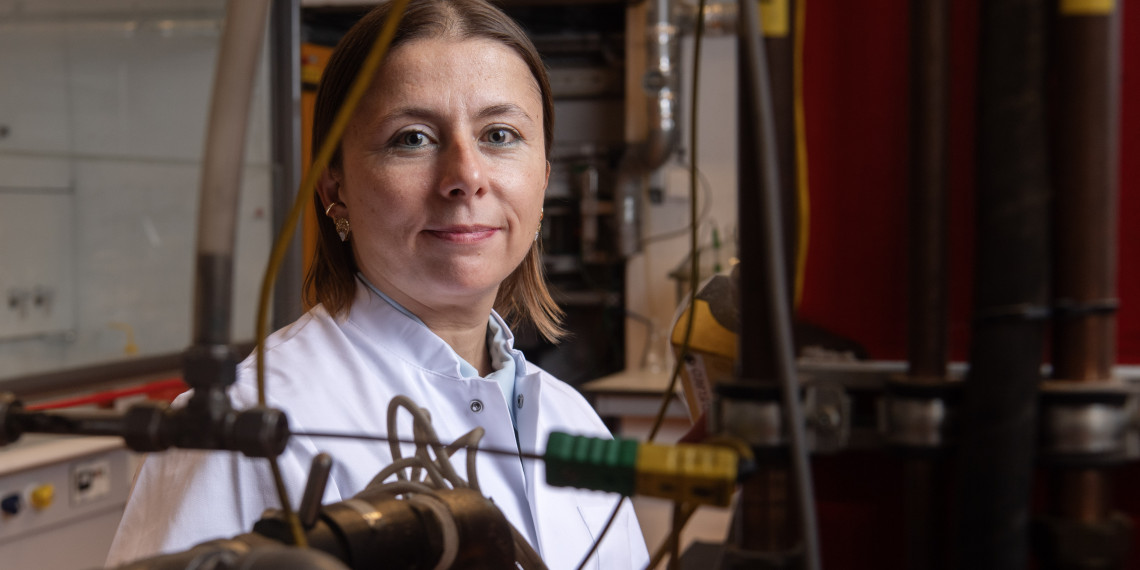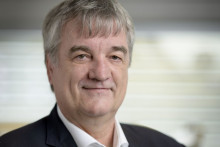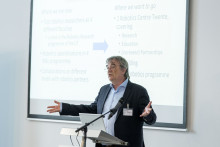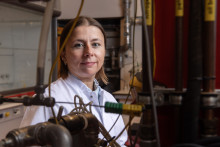Canan Acar is hesitant to define ‘a good scientist’ because, as she says, that comes with the idea of ‘a better scientist’. She worries such a notion would only increase the pressure academics face on a daily basis. ‘Unlike other professions, we constantly have to justify our time and work. We always have to explain ourselves. What are the attributes of a good scientist? And why do I even need to prove that I’m better than someone else? Isn’t that toxic in itself? It’s impossible to put people in boxes and compare them. You can’t put people in a box, especially when you expect them to think outside the box.’
Instead, the Assistant Professor aims to create a more nurturing environment – for her colleagues and herself. ‘The expectations are sky-high. No wonder that mental illnesses are so common among young academics. It’s draining us. The old-school ‘work hard, play hard’ attitude didn’t die in academia,’ she says. ‘We need to change the narrative and stop glorifying people who work all the time.’
‘If being a good scientist means working all the time, then I’m okay with not being a good scientist’
And so, if Acar’s fellow academics talk about working late, or not even having time to get properly dressed in the mornings, she replies that she appreciates their hard work, but hopes for them to also rest and have fun. She applies the same standards to herself. ‘Because, in the end, the only people who’ll remember how hard I worked will be the ones I love the most – because I will be absent from them’, says Acar. ‘Yes, I love my job, but it is still just a job. I need to care for myself, my loved ones and their health and happiness. I’m very lucky that I make money by doing something that I find very meaningful, but if being a good scientist means working all the time and losing my health, then I’m okay with not being a good scientist.’

Difficulties or not, there is no other path for Canan Acar. ‘Science was always in the stars for me’, says the UT researcher. ‘It might be a very stereotypical answer, but the truth is that I was a very curious child, always asking questions about absolutely everything. From early in my career it was clear to me that I wanted to stay in academia. I could not imagine just working in industry and contributing to a larger profit of a company. I have more control over my work in academia. Thanks to teaching, I’m also always surrounded by younger and younger generations, and I keep evolving. I like that. I like to be challenged.’
Canan Acar’s career in a nutshell
2021 – present Tenure Track Assistant Professor at the Thermal Fluid Engineering department, Faculty of Engineering Technology, University of Twente
2016 - 2020 Assistant, then Associate Professor of Energy Systems Engineering at Bahcesehir University (Turkey)
2016 Outstanding Doctoral Thesis Award and Governor-General of Canada’s Gold Medal for Academic Excellence
2016 PhD in Mechanical Engineering from the Ontario Tech University (Canada)
2012 – 2016 Teaching Assistant, Ontario Tech University (Canada)
2007 – 2011 Research Associate, Illinois Institute of Technology (USA)
Canan Acar studied Chemical Engineering and became interested in climate change while working as an Energy and Waste Consultant for a juvenile correctional facility in Chicago. ‘The inmates worked in a recycling facility and in the garden, and I contributed to a more sustainable way of operating. It was wonderful to combine my skills with creating value for society. At that moment, I knew I wanted to work with energy and started focusing on hydrogen during my PhD.’
Canan Acar’s research in a nutshell
Hydrogen energy and sustainable energy systems are at the core of Acar’s research. More specifically, she focuses on the integration of renewable-based hydrogen energy systems in the urban environment (buildings, mobility, and the industry). Her work covers hydrogen production, storage, and end-use, energy and exergy analyses, sustainability, multigeneration, and integrated and clean energy systems. She investigates the use of hydrogen as an energy carrier, storage medium or fuel, looking at possibilities to use green hydrogen to power households and industry.
The UT scientist is an expert in the field of hydrogen energy, looking for ways to use green hydrogen in the existing and new infrastructures and move towards more sustainable energy systems. ‘We currently face the question of how to keep our lifestyle, and how to provide the same or better lifestyle for the future generations without fossil fuels. But not everything can be electrified, and renewable sources of energy have their limits. It’s not easy to transfer or store renewables – yet.’
Hydrogen energy could provide a solution to this challenge, says Acar. ‘I’m looking into how we could use hydrogen to power our houses and industry in a more responsible manner. I’m investigating the use of hydrogen as an energy carrier, storage medium or fuel. I aim to provide a roadmap for using hydrogen in different user types and developing efficient energy systems that mimic nature as closely as possible – because there is no waste in nature, it is always circular.’
‘When I was a PhD researcher, I was the only female in the whole department. Now I have the opportunity to be the person to inspire others’
‘Being part of this solution really motivates me’, concludes Acar. ‘I see a lot of potential in my work.’ In terms of her research, but also other contributions, adds the UT researcher. ‘I like that I’m in a position to change things for others. When I was a PhD researcher, I was the only female in the whole department. Now I have the opportunity to be the person to inspire others and show them that it’s possible. I wish many things were different in academia, but I would still choose to do exactly what I do. It gives me pride.’








